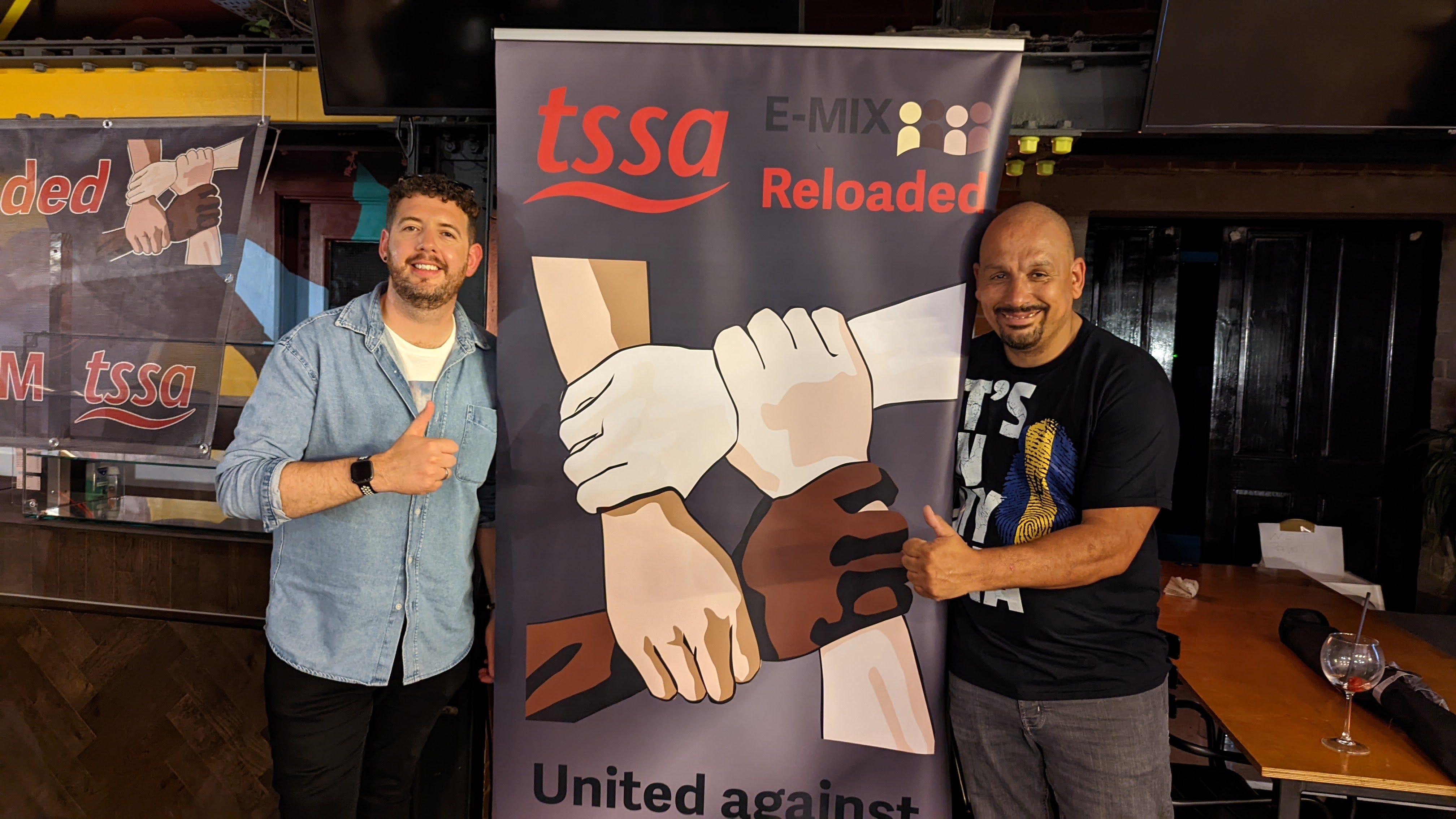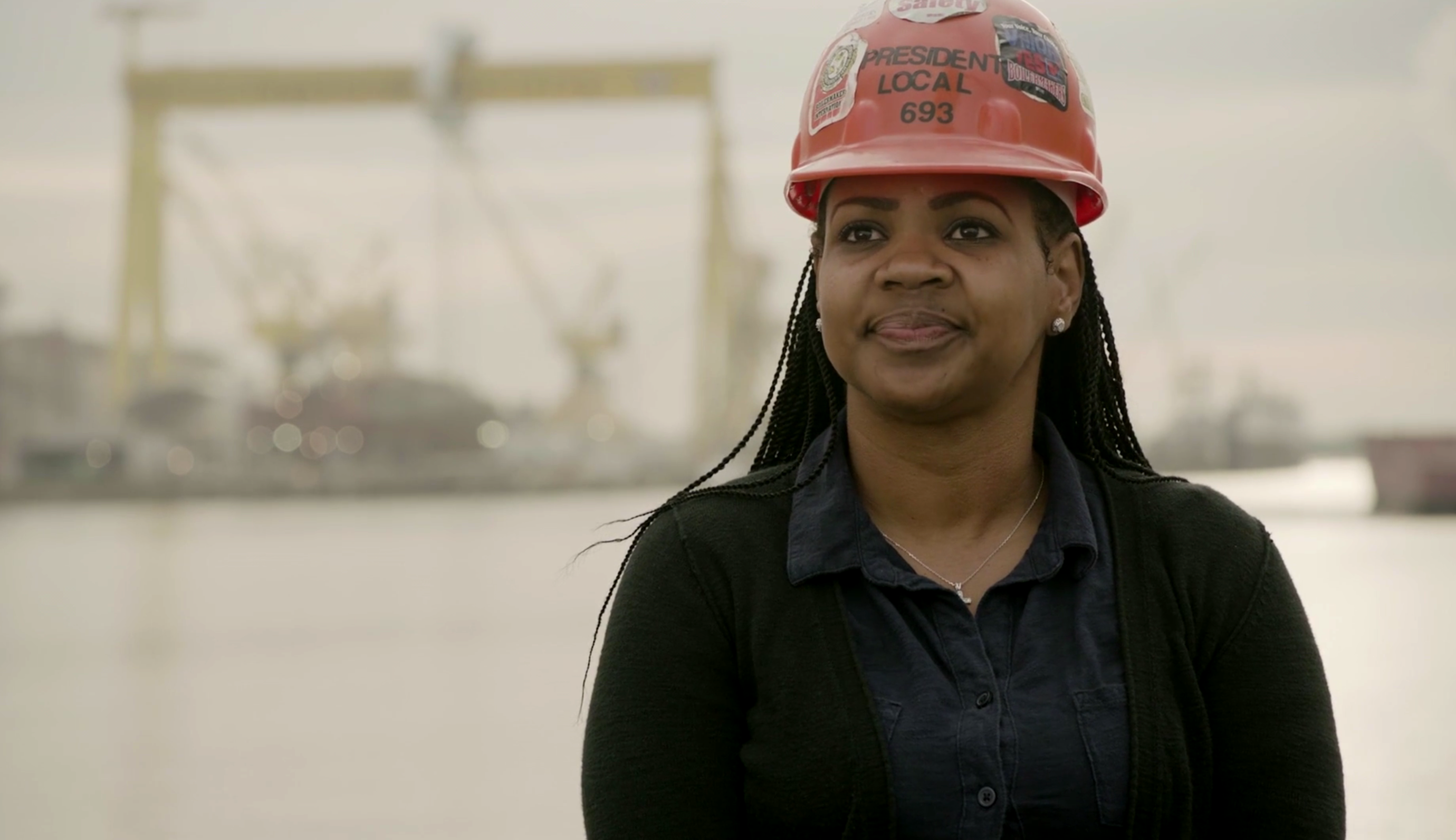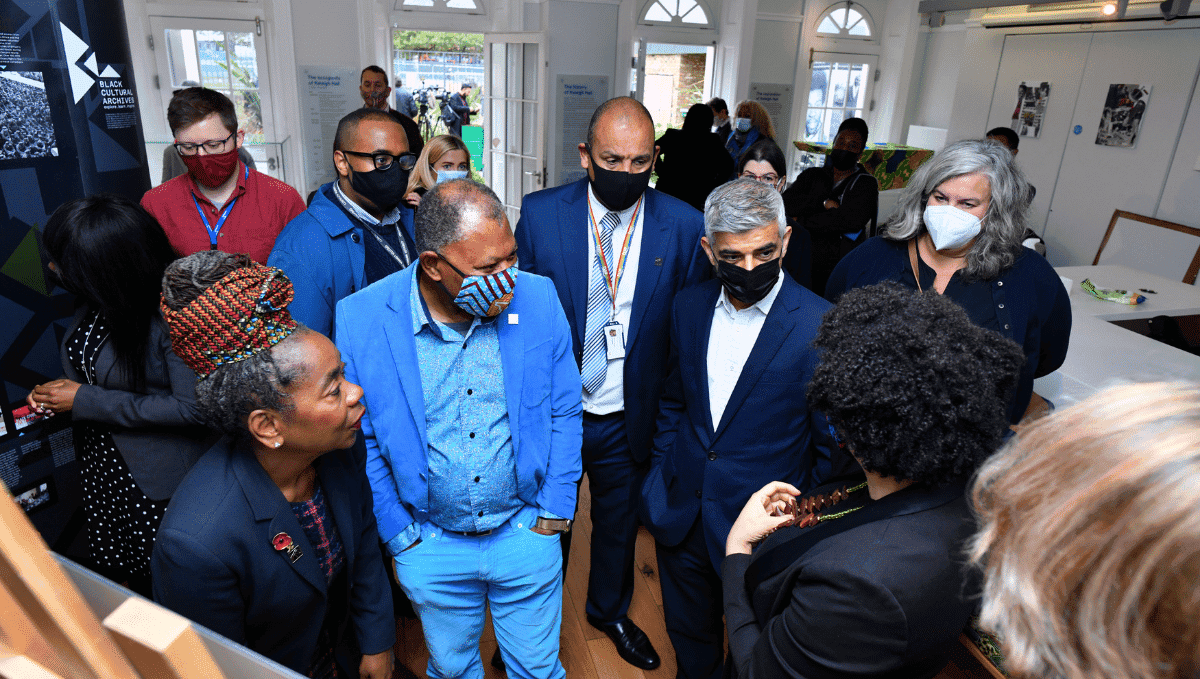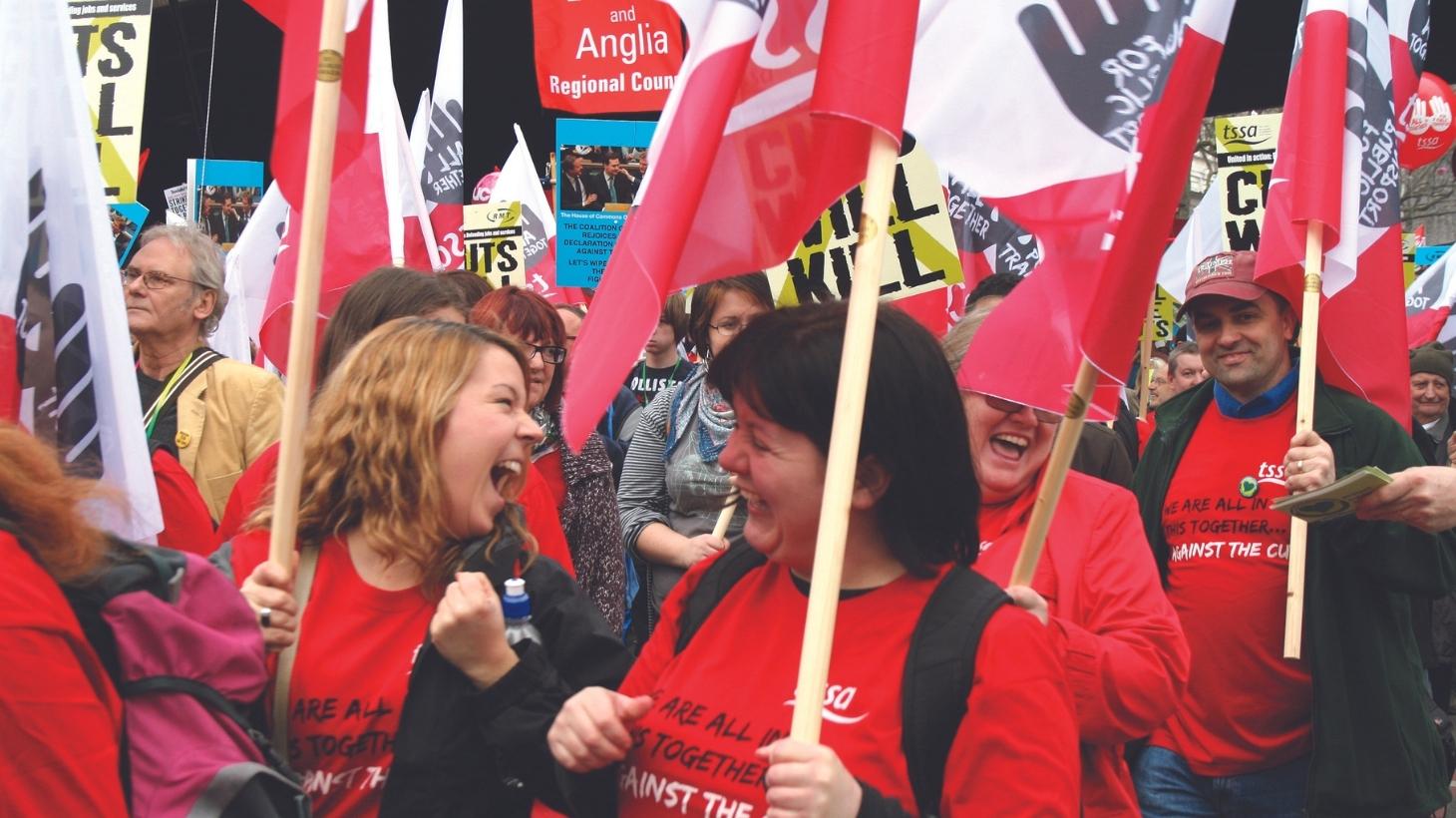Cuba Solidarity Campaign - Young Trade Unionists' visit
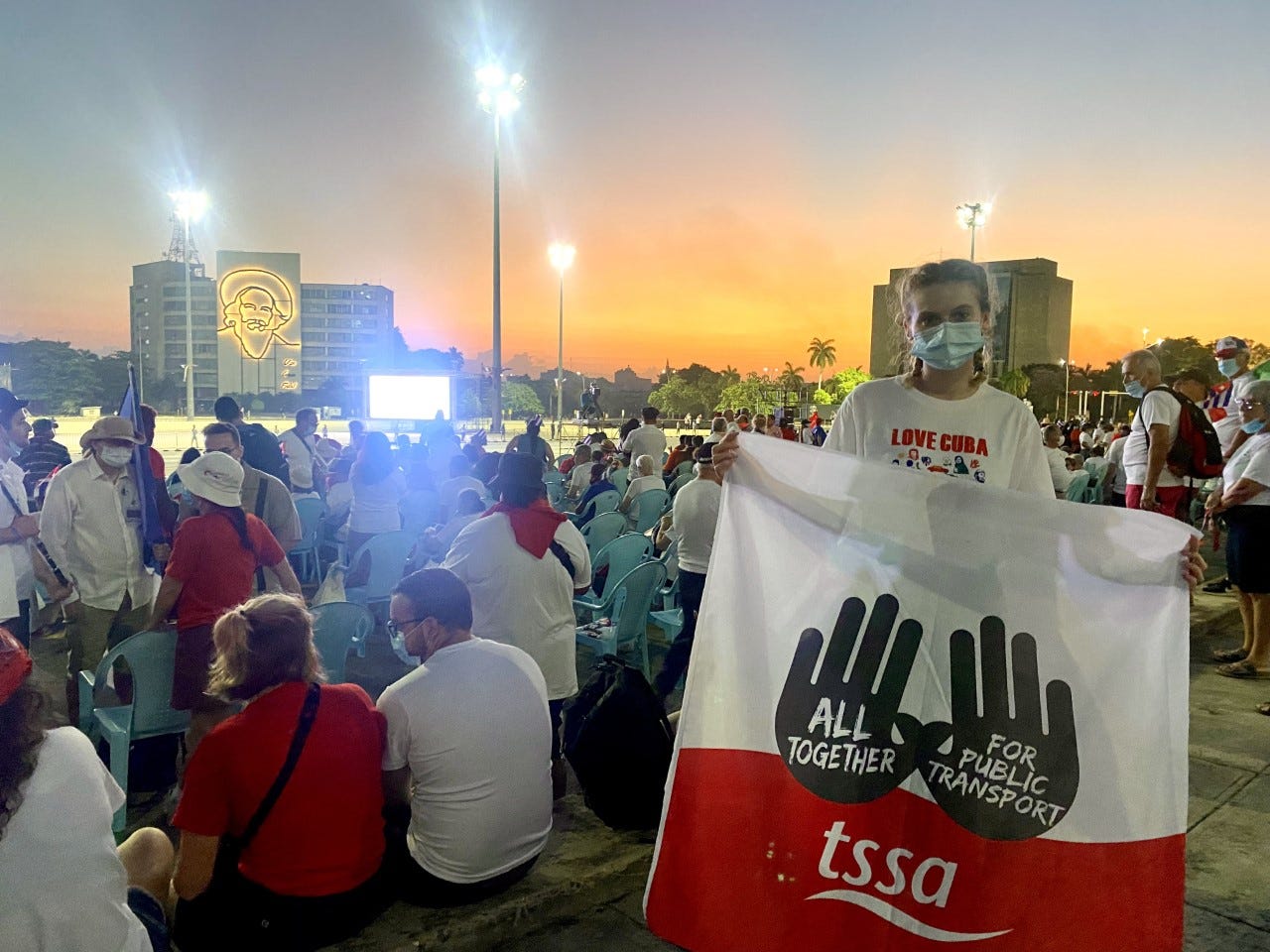
In April this year, I visited Cuba with the Cuba Solidarity Campaign, representing TSSA as part of the Young Trade Unionists’ May Day Brigade. I was one of around 30 trade unionists from the UK and Ireland delegation, and one of hundreds of international delegates staying at Julio Antonio Mella International Camp in Artemisa. The purpose of the trip was to see the impact of the US blockade and achievements of the Cuban Revolution first-hand, as well as to offer our solidarity with the Cuban people.
On several mornings we split into groups mixed with delegates from around the world to undertake agricultural work. I worked on the camp and in a neighbouring cooperative farm, weeding around yucas and chillies. Most of Cuba’s farms are cooperatives, meaning the land is held in joint ownership by the farm workers, is collectively cultivated, and any profits from the farm are shared by the cooperative members. The blockade affects Cuba’s import of agricultural machinery, so even though the volunteering was mostly a symbolic gesture, it was also really appreciated by the workers we spoke with.
The economic restrictions on Cuba impact almost everything they import: building materials, medical supplies, educational resources, even basic provisions. Many of us in the brigade brought material aid with us, which we distributed to the many places we visited across the country.
One of our first visits was to the Pedro Kouri Tropical Medicine Institute (IPK) where we met with scientific staff including Dr María Guadalupe Guzmán, one of the team who developed Cuba’s COVID vaccines. I was pleased to be able to donate the material aid I had brought, boxes of syringes, to the institute, something specifically in short supply because the US impedes their import into Cuba.
Other visits we made included: the International Conference of Solidarity, where Cuban President Miguel Diaz-Canal gave an invigorating speech; ‘neighbourhood in transition’ communities being targeted for extra resources to improve living conditions in the barrio; the Che Guevara memorial; and the grave of Fidel Castro.
We also attended talks by representatives of the Federation of Cuban Women and the CTC - the trade union federation in Cuba - and learnt about their key role in Cuban society.
The biggest highlight for me was attending the May Day Rally in Havana, a celebration of the achievements of the international working class and labour movement. Over one million people were in attendance, including the Miami Five and Raul Castro. Workers from every industry came together to march to Plaza de la Revolucion carrying banners and signs with references to their field of work, words of support for the revolution, anti-blockade sentiments, and photos of revolutionary leaders like Fidel Castro and Che Guevara. I stood at the barriers with other UK and Ireland delegates, wearing the brigade T-shirt given to us by the Cuba Solidarity Campaign that read ‘Love Cuba - Hate the U.S Blockade’ and waved my TSSA flag. Several participants in the parade stopped to give me a thumbs up and take my picture! The rally was, to me, a physical manifestation of Cuba’s high regard for its workers.
The trip was a completely energising experience. I am so grateful to have had this opportunity to deepen my understanding of Cuba’s struggles but, more importantly, their continued achievements in the face of imperialist aggression.
A sentiment was expressed on the trip which really resonated with me: “Solidarity is sharing what you have, not what you have left over.” It feels particularly relevant amidst the current national rail dispute, as workers are forced to fight for fair working conditions and compensation on the railway that is run by us. It is a reminder to keep the struggle for workers’ rights at the core of what we do.
If you would like to, you can learn more about the Cuba Solidarity Campaign.

